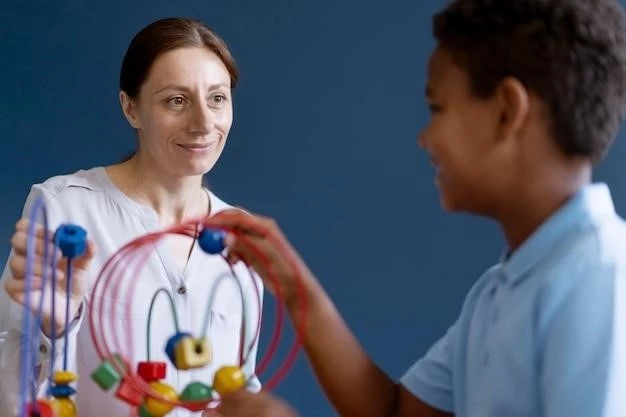Introduction
Neuhauser-Eichner-Opitz Syndrome, also known as recurrent encephalopathy of childhood, is a rare genetic neurological disorder with distinct characteristics.
Overview of Neuhauser–Eichner–Opitz Syndrome
Neuhauser–Eichner–Opitz Syndrome, also known as recurrent encephalopathy of childhood, is a rare genetic neurological disorder with symptoms often triggered by febrile illnesses. It is characterized by acute encephalopathic episodes in infancy or childhood, involving the cerebellum and extrapyramidal system. The condition presents challenges in diagnosis due to its varied manifestations and requires specialized management approaches. Research efforts continue to deepen the understanding of this complex syndrome and improve treatment outcomes for affected individuals.

Symptoms and Diagnosis
Symptoms of Neuhauser-Eichner-Opitz syndrome may include truncal ataxia, chorea, athetosis, absent deep tendon reflexes, and hyperextensible joints. Diagnosis involves recognizing the characteristic features and may require genetic testing for confirmation.
Characteristics of Neuhauser–Eichner–Opitz Syndrome
Neuhauser–Eichner–Opitz Syndrome is a rare genetic neurological disorder characterized by recurrent acute encephalopathic episodes typically triggered by febrile illnesses. Symptoms include truncal ataxia, chorea, athetosis, absent deep tendon reflexes, and hyperextensible joints. This condition often manifests in infancy or childhood with cerebellar and extrapyramidal system involvement, posing challenges in diagnosis and management.
Neuhauser–Eichner–Opitz Syndrome is a rare genetic neurological disorder with distinctive characteristics and an onset triggered by febrile illnesses.
Genetic Factors and Disease Progression
Neuhauser–Eichner–Opitz Syndrome is a rare genetic neurological disorder identified by infantile or childhood onset of recurrent acute encephalopathic episodes with cerebellar and extrapyramidal involvement after febrile illnesses.
Treatment Options
Treatment of Neuhauser-Eichner-Opitz syndrome focuses on managing symptoms and providing supportive care. It may include physical therapy, medications to address specific symptoms, and regular monitoring by a multidisciplinary healthcare team;
Management Strategies for Neuhauser–Eichner–Opitz Syndrome
Management of Neuhauser–Eichner–Opitz Syndrome involves a multidisciplinary approach focusing on symptomatic relief, supportive care, physical therapy, and the use of medications to address specific symptoms. Regular monitoring and individualized treatment plans are essential components of managing this rare genetic neurological disorder.
Research and Studies
Studies and research on Neuhauser-Eichner-Opitz syndrome aim to deepen the understanding of this rare genetic neurological disorder and improve treatment outcomes for affected individuals.
Advancements in Understanding the Syndrome
Recent studies have made significant strides in unraveling the complexities of Neuhauser-Eichner-Opitz syndrome, shedding light on its genetic underpinnings and disease progression mechanisms. These advancements pave the way for more targeted treatment approaches and enhanced outcomes for individuals with this rare neurological disorder.

Support and Resources
Individuals with Neuhauser-Eichner-Opitz syndrome can benefit from various support services and resources that provide assistance, information, and guidance for managing the challenges associated with this rare genetic neurological disorder.
Assistance Available for Individuals with Neuhauser–Eichner–Opitz Syndrome
Individuals with Neuhauser–Eichner–Opitz syndrome can access support and resources through organizations like Orphanet, medical professionals, and rare disease networks to navigate the challenges associated with this genetic neurological disorder. These resources aim to provide information, assistance, and a supportive community for affected individuals and their families.
Impact on Patients and Families
The impact of Neuhauser-Eichner-Opitz syndrome on patients and families can be profound, requiring specialized care, managing symptoms, and navigating the challenges associated with this rare genetic neurological disorder.
Challenges Faced by Patients and Caregivers
Patients and caregivers of individuals with Neuhauser-Eichner-Opitz syndrome encounter various challenges, including managing recurrent acute encephalopathic episodes, seeking specialized care, navigating the complexities of the disorder, and addressing the impact on daily life and overall well-being.
Efforts to understand and manage Neuhauser-Eichner-Opitz Syndrome are advancing, offering hope for improved outcomes and support for affected individuals and their families.
Future Outlook for Neuhauser–Eichner–Opitz Syndrome Research and Treatment
Ongoing research efforts and advances in understanding Neuhauser-Eichner-Opitz syndrome offer promise for enhanced therapies, improved patient outcomes, and the development of more targeted management strategies for this rare genetic neurological disorder.
